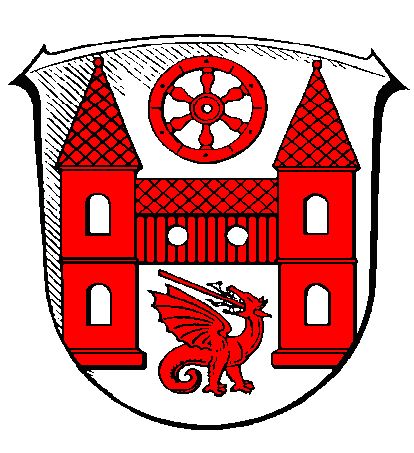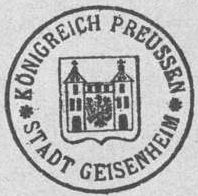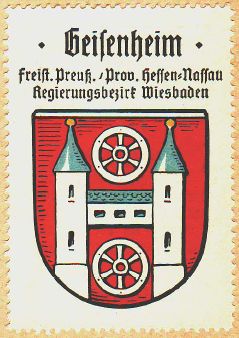Geisenheim: Difference between revisions
Knorrepoes (talk | contribs) m (Text replacement - "{{de1}}" to "{{de}}") |
Knorrepoes (talk | contribs) m (Text replacement - "{{media1}}" to "{{media}}") |
||
| Line 36: | Line 36: | ||
{{de}} | {{de}} | ||
{{ | {{media}} | ||
[[Category:German Municipalities G]] | [[Category:German Municipalities G]] | ||
Revision as of 05:59, 4 August 2023
GEISENHEIM
State : Hessen
District (Kreis) : Rheingau-Taunus Kreis (until 1973 Rheingaukreis)
Additions : 1972 Johannisberg; 1977 Stephanshausen
| German | blazon wanted |
| English | blazon wanted |
Origin/meaning
The arms were adopted on June 6, 1977.
The two towers symbolise the old parish church, which was destroyed in 1829. The wheel is derived from the arms of the State of Mainz, to which the city historically belonged until 1803. The wheel was also part of the arms of Johannisberg. The dragon in the base is taken from the arms of Stephanshausen. Previously the city used arms of a similar design, but with two wheels, see below.
The towers appear for the first time on the seals of the city in the 15th century. In the gate between the towers the double-wheel symbol of the State of Mainz was shown. In the 19th century the two wheels were separated into the present composition. The colours are the colours of the State of Mainz.
| The municipal stamp shown in 1892 |
The arms by Hupp in the Kaffee Hag albums +/- 1925 |
Literature: Stadler, 1964-1971, 8 volumes.
This page is part of the German heraldry portal Deutsche Wappensammlung |
Heraldry of the World |
|
German heraldry:
|
Selected collector's items from Germany:
|
Contact and Support
Partners:
Your logo here ?
Contact us
© since 1995, Heraldry of the World, Ralf Hartemink 
Index of the site















